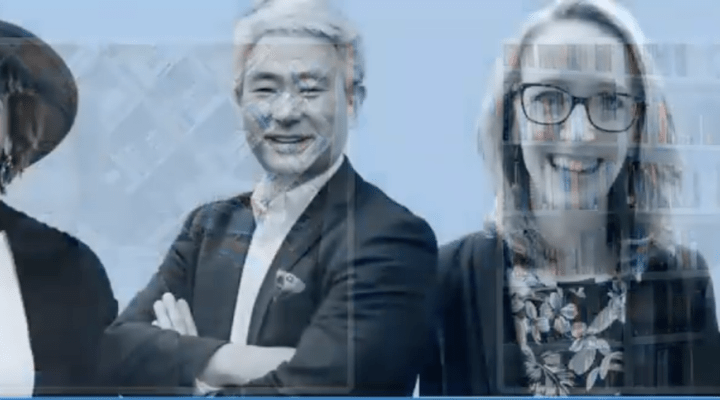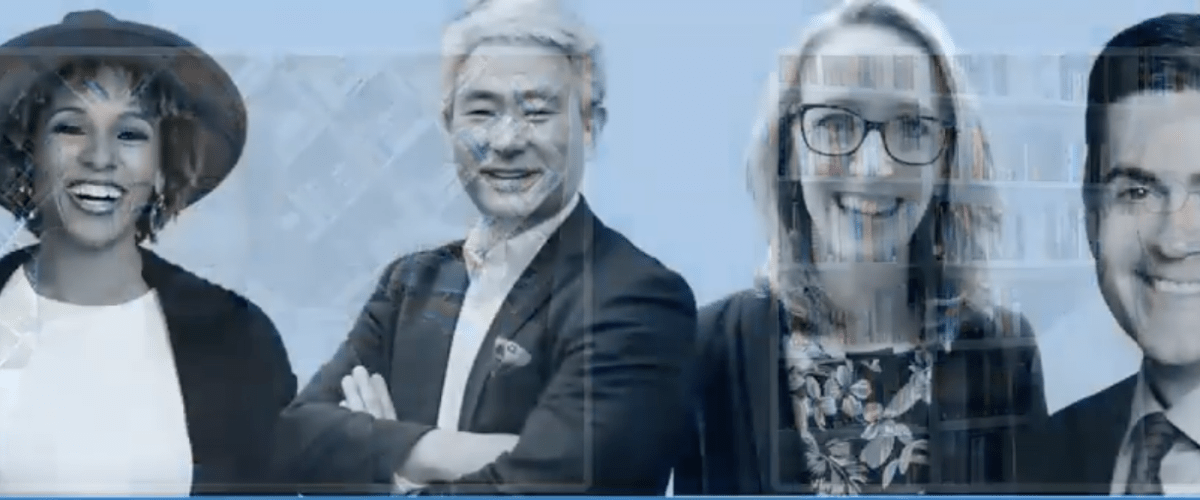Evangelical Christians can overcome their suspicion of COVID-19 vaccines through a renewed focus on missions and a form of patriotism that engenders unity instead of division, Russell Moore said during a recent webinar hosted by the Facebook for Faith learning group.
“I spend a lot of time telling Christians, don’t make your country your idol. Put the kingdom of God first. (Being vaccinated) is an opportunity for good, genuine, God-approved patriotism,” said Moore, president of the Southern Baptist Convention’s Ethics and Religious Liberty Commission.
He and fellow panelists Emily Smith, a Baylor University epidemiologist, and Walter Kim, president of the National Association of Evangelicals, sought to address the vaccine skepticism of white evangelicals.
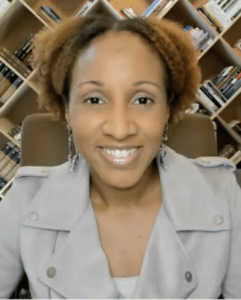
Nona Jones
The 30-minute conversation was moderated by Nona Jones, head of faith partnerships for Facebook. The next conversation in the series will be held at 3:30 p.m. Eastern on May 14.
When speaking to conservative Christian groups, Moore said he tries to connect how vaccination can help churches return more fully to living into their ministries. “I talk about specific ways that we can get back to what Jesus has called us to do: vacation Bible schools with the children in our community, or mission trips or … Christmas youth choirs and children’s choirs and those sorts of things.”
From that vantage point, it’s natural to see vaccines as gifts, he added. “The best strategies that I have seen are rooted in gratitude and mission, so when you have a congregation recognizing God’s good gifts when it comes to the vaccine, this becomes something we should thank God for.”
Polls show evangelical distrust
But recent polling suggests that such messages are falling on deaf ears among conservative evangelicals due to a longstanding distrust of science and government and an adoption of conspiracy theories around the coronavirus and vaccines.
A March 2021 poll by the Associated Press and NORC Center for Public Affairs Research reported that 40% of white evangelicals said they refuse to be vaccinated, compared to 25% of the overall population who hold the same view. A survey conducted by the Pew Research Center that month found the trend to be higher, with 45% of white evangelicals declaring they will not get a vaccine.
Nationwide, close to 59% of adults have received at least one vaccination, the Centers for Disease Control reported.
Preaching ‘Love thy neighbor’
For Smith, it is the “love thy neighbor” ethic that inspires her efforts to work toward replacing the anger and fear surrounding vaccines with science and faith.
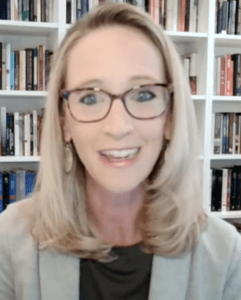
Emily Smith
“I got into my work because of the Good Samaritan story of quantifying the need and not walking by,” said Smith, who launched her Friendly Neighborhood Epidemiologist Facebook page during the pandemic to address questions from family, friends and others confused about what to believe about the coronavirus and, now, the vaccines.
Smith, who is the wife of a Baptist pastor, said she watched a widespread concern for neighbor at the beginning of the pandemic be replaced by a rising white Christian nationalism as a reaction to the Black Lives Matter movement and that came to blame Asians, and by extension Asian Americans, for spreading the coronavirus.
“It all became one big, messy thread,” she said. “But I had the data to show that was not real.”
And while things are getting better in the U.S. due to vaccines, the situation remains scary in much of the world, Smith said.
“Globally, we’re at 155 million cases and 3.2 million deaths,” she said, adding the numbers are likely low due to under-reporting in nations like India and Brazil, where the virus is surging.
Being honest about the trends of the disease isn’t just good science, it’s also good faith.
“In terms of vaccinations, there are 1 billion vaccine doses that have gone out so far, but 80% of those have gone to high-income countries and 0.3% have gone to low-income nations, with the projected timeline of actually getting to low-income countries to be in 2023,” she said. “We’re at the height of the pandemic, if you think globally.”
Being honest about the trends of the disease isn’t just good science, it’s also good faith, she added. “Love your neighbor means we get the story right and we meet it head on.”
A good dose of ‘healthy theology’
One way to address those fears is to counter numerous forms of vaccine misinformation, including claims that being vaccinated shows a lack of faith in God, with healthy theology, Kim said.
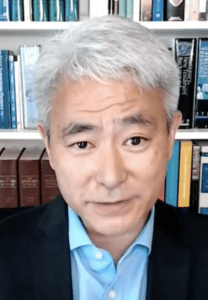
Walter Kim
“We’ve contended that faith actually accepts the gifts that God gives to us, and God has given us medicine as a gift. So, it is an actual expression of faith to receive the goodness and the common grace that God gives to us in medicine.”
In addition to being a blessing, vaccination also is a way of serving in mission, he said.
“This vaccine is not merely about self-protection. It’s about loving our neighbors. It’s about doing something that increases the possibility of safety to those around us — family, friends, neighbors and communities,” he said. “It’s an expression of the Christian ethic of love that we want to communicate in faith.”
As part of its vaccine educational efforts, the NAE has hosted webinars and collaborated with the Ad Council, community-based organizations, media companies and other religious groups to show that faith and science are not at odds on COVID-19 safeguards.
An ad campaign called “It’s Up to You” was designed to target people of color, “recognizing that faith and church often are very central in those communities, and it becomes a trusted source of information as well as emotional and spiritual support.”
The campaign and efforts like the Facebook for Faith webinar series demonstrate that promoting vaccination requires a broad faith-based effort, Kim said. “There’s this sense in which it takes more than any one of us. It takes us all to work together.”
Distrust predates the vaccine
Among white evangelicals, the aversion to vaccination is more about deeper cultural and political fissures than it is about the vaccines themselves, Moore said when asked what fuels conservative Christian suspicion about COVID-19 vaccination.
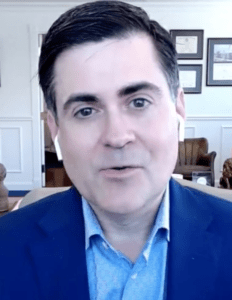
Russell Moore
“Arguments and disagreements about the vaccines aren’t fueling the conflict. Pre-existing conflict is often fueling the arguments over vaccines and vaccination,” he said. “And in many religious contexts, previously open wounds and points of difference are exacerbated by all the stress that the entire world has been through over the last year.”
Many evangelical pastors have remained silent on the issue because they often don’t know who to believe, the science or conspiracy theories, he said. “There are so many competing sources of information. I have people asking me all the time, ‘How do I differentiate between what’s right and wrong when I’m not an epidemiologist? I’m not someone who’s trained scientifically to be able to answer these things.’ So, there’s a lot of confusion.”
And there are yet others who are taking a wait-and-see approach before making a decision on vaccination, he added. “They’re not early adopters with any sort of technology, and I think we shouldn’t confront them head-on.”
So, it’s important not to paint white evangelicals with a wide brush on the matter, Moore added. “We always have to be looking at multiple different kinds of concerns and issues that are taking place with vaccination. And some of it is a frustration that is coming out of exhaustion, and vaccination is just the way that it’s being expressed.”
Related articles:
If you think we’re out of this pandemic, take a look at the rest of the world
Your friendly neighbor epidemiologist has an important message for you
Interpreting the data: Why are some Christians getting vaccinated and others aren’t?
4 in 10 Americans don’t see getting vaccinated as a way to ‘love your neighbor’
Faith leaders are key to reaching herd immunity in U.S., researchers say

